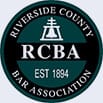Corona Asset Protection Attorney
Home / Asset Protection

Corona Asset Protection Lawyer
Practice Area
Keeping your assets protected should be a top priority if you are a high-net-worth individual or a business owner. Civil claims, creditors, and divorce can all threaten your wealth. Seeking the legal counsel of a trusted Corona asset protection attorney can help provide clarity on the most appropriate ways to protect your assets in California.
Our experienced team at Lobb & Plewe assists clients in developing and implementing comprehensive asset protection plans. We are a law firm committed to serving businesses and entrepreneurs in Riverside County and surrounding communities. Our team has the knowledge and experience that you can count on when you need it most.
What Is Asset Protection?
You worked hard to accumulate your wealth over your lifetime. Perhaps you are a business owner who has strived to elevate your company to its current level. Leaving this success without suitable protection can translate to major losses down the road.
Asset protection is a strategy to protect the tangible and intangible property you have accumulated against various legal threats. Both individuals and businesses can benefit from asset protection.
The Importance of Asset Protection for Individuals
Your wealth is represented in your tangible assets like cash, bank accounts, investment accounts, vehicles, real estate, jewelry, and antiques, among others. Financial challenges can put your tangible assets at risk.
These can include:- Civil complaints resulting from negligence, for instance
- Marital property division following a divorce
- Creditors coming after your assets
- Unforeseen tax liabilities
- Economic issues like inflation or recession
It is difficult to predict when any of these situations can materialize. For this reason, having an asset protection plan can afford you peace of mind regardless of the circumstances.
Asset Protection Is Essential for Businesses
For business owners and entrepreneurs, making your business a legal entity separate from you is a critical step to shielding your personal finances from business risks.
Businesses are vulnerable to liability or malpractice claims. Inadequate business contracts can also be detrimental to a business’s finances. These, along with tax compliance issues and intellectual property matters, are at the root of many business failures.
Risk assessment is a critical aspect of protecting a business. A qualified attorney, especially a tax lawyer, can provide a detailed overview of potential risks to your personal and business assets, helping you develop a comprehensive asset protection strategy, as building one for your business is very important.
Legal Tools to Protect Your Assets
Despite the existence of strong property protection laws in the U.S., the risks to personal and business wealth are abundant. California law provides various tools for wealth protection that you should consider.
- Estate planning. Planning how your wealth is managed if you are incapacitated or upon your death is critical to guaranteeing that your assets are distributed per your wishes. Creating a trust, for instance, allows you to name a trusted person to administer your assets upon death. An asset protection trust can also be a valuable tool in this process, as it helps shield your assets from potential creditors and legal claims, ensuring they remain protected for your beneficiaries.
You can rest assured that your wealth is not appropriated by the state or mismanaged by ill-intentioned individuals so that your loved ones are taken care of. You may also rely on a power of attorney to place important financial decisions in the hands of a family member or a close associate.
- Legal entity formation. Having an adequate legal entity for your business can mean the difference between financial loss and profit. Forming a limited liability company (LLC) may be a suitable way to separate your personal finances from those of your business in case of a lawsuit or a divorce. Establishing a corporation may be adequate if you want to make the most of certain tax advantages.
- Contract law. Having iron-clad contracts provides an additional layer of security for your business. Licensing agreements can allow you to gain monetary benefits from your created work while protecting its ownership. Non-disclosure agreements (NDAs) are a safeguard against the disclosure of confidential company information, which can threaten your company’s finances if exposed.
- Intellectual property protection. For intangible assets like inventions, patents, and trade makers, intellectual property protection serves to shield your immaterial assets from misappropriation or threat, providing an additional defense for your current and future wealth.
These are some of the several tools available to you in California to protect your wealth. The specifics of which action is most suitable for you can be discerned with the guidance of a knowledgeable attorney.
Ways a Corona Asset Protection Attorney Can Help
The role of a Corona asset protection attorney is to assess your current asset protection needs and suggest the most adequate solution to your situation.
- Assessing current legal risks. A trusted attorney can help you understand whether your assets are adequately protected and, if not, what steps you need to take to make sure they are.
- Developing a custom-made plan. The next step is to devise a suitable asset protection plan for your situation. Your lawyer can help determine which business entity can work well for your business or if a trust or a will is most appropriate for your needs.
- Implementing your asset protection strategy. It is not enough to know what you need to do. Having the backing of a skilled attorney can translate to fewer mistakes and quicker resolution when filing paperwork, writing contracts, or finalizing the details of your estate plan.
FAQs
What Is the Strongest Asset Protection?
For individuals, developing estate planning is a strong asset protection strategy. Creating a will or a trust and setting in place a power of attorney allows you to place your assets in the hands of a trusted person and gives you more control over how your wealth is distributed upon death. For businesses, determining an adequate business entity is one of the most critical ways to protect a business.
How Much Is Asset Protection?
How much asset protection planning is depends on several factors. Business asset protection may be more costly than asset protection for individuals due to the legal and tax implications. Individuals with a large estate may also require additional layers of protection, which can impact the cost of the process. Speaking with your attorney about your specific needs can help to identify the potential costs you could incur.
How Does Asset Protection Work?
Asset protection works by devising and implementing a comprehensive strategy to legally protect a person or business’s assets in case of a civil claim, circumstances like divorce or death, and tax liabilities and issues of intellectual property. This is done through the creation of specific legal contracts and entities. An attorney will help guide you through the asset protection process.
What Type of Lawyer Is Ideal for Wills?
An attorney with extensive years of experience in estate planning is ideal to help you create your will. An estate planning lawyer reviews your will so that it complies with state laws and that the language of the will is explicit enough in the way it details your last wishes. Knowledge of California tax law may also be helpful in the will creation process.
Contact Lobb & Plewe to Get Help with Asset Protection Cases
It is important to plan for the worst-case scenario. The seasoned team at Lobb & Plewe has decades of practice assisting both individuals and businesses of different scales in developing sound asset protection plans and setting them into action. We provide tailored solutions to each case, and we help ensure you are complying with laws and regulations along the way. Contact us today to schedule a free consultation.
Corona Practice Areas
Our Attorneys
Let's Connect
- 951-788-9410
-
4160 Temescal Canyon Rd.
Suite 202
Corona, CA 92883
Newsletter

















